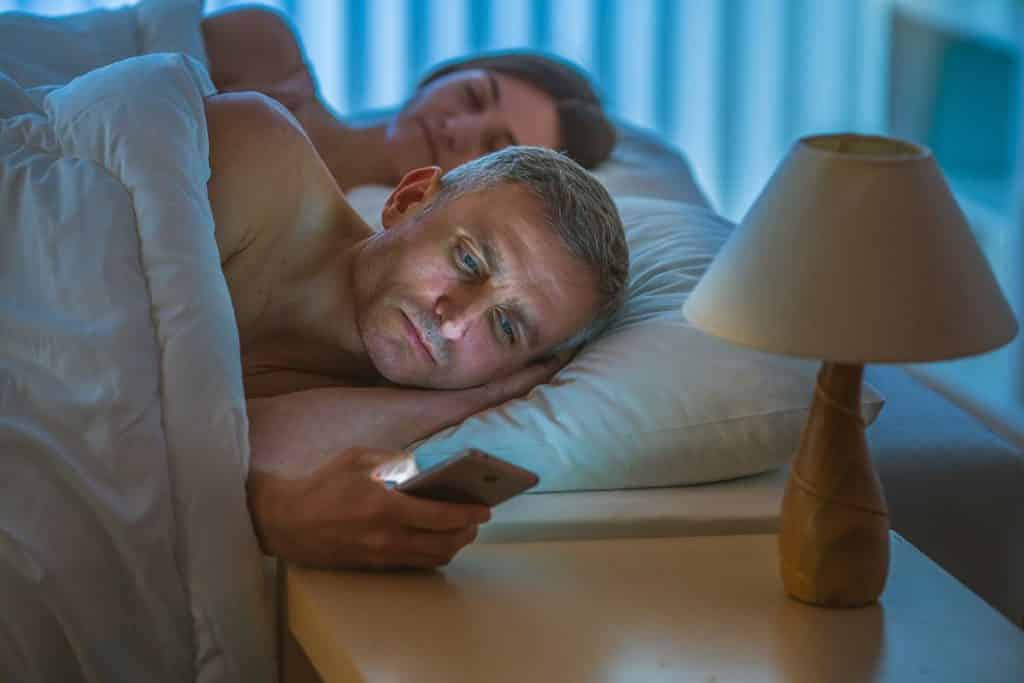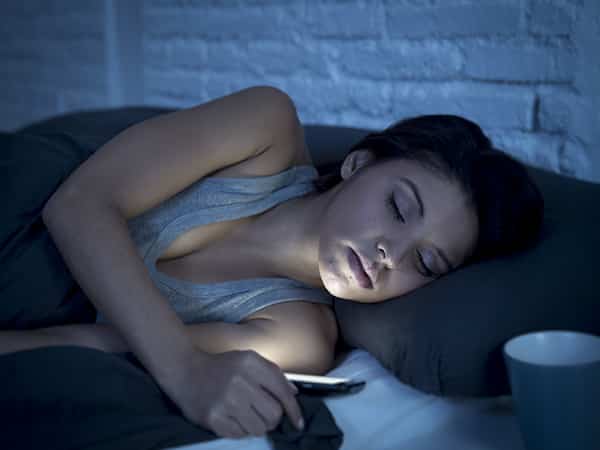In today’s fast-paced digital age, it seems like we’re constantly connected to our phones and other devices. But have you ever heard of the phenomenon of sleep texting? Is it real or just a myth? Can we really send messages while we’re sound asleep?
In this article, we’ll take a closer look at this mysterious behavior and explore what might be behind it.
What Is Sleep Texting?
Sleep texting occurs when someone sends or replies to a message on their phone while asleep or in an unconscious state.
Sleep Texting Examples
Sleep texting is generally triggered by something that would make you pick up your phone during your waking hours. This could be a text alert, app notification, or simply your screen lighting up.

This can cause someone that suffers from a sleeping disorder such as parasomnia to pick up their phone and reply to a text while they are actually sleeping. These kinds of sleep disorders are highly disruptive to REM sleep.
If someone dreams about texting, it could cause them to pick up their phone and send a message while they’re still asleep – even if they don’t get a notification from their phone.
What Causes Sleep Texting?
There haven’t been any studies done on the phenomenon of sleep texting to date, but we can take a closer look at what causes other parasomnias to get a better idea of why sleep texting takes place.
Parasomnias can take place during REM sleep, Non-REM sleep, and even in the state between sleeping and consciousness. While some people are more prone to parasomnias than others, they are frequently caused by disruptions that take place during the sleep cycle. These include:
- Not getting enough sleep
- Not having a regular sleep schedule
- Certain medications, including those that cause people to feel sleepy such as antidepressants, antihistamines, and blood pressure medicine
- An immaturity within the realm of sleep patterns (this is often the case for children suffering from parasomnias)
- Bodily issues that cause disruptions during the night, such as restless leg syndrome, narcolepsy, obstructive sleep apnea, periodic limb movement disorder, and circadian rhythm disorders.
While these are the most common causes of parasomnias, they are not the only reasons someone may be suffering from them. These are a couple of other reasons people struggle with parasomnias:
- Severe stress
- Fever
- Head injury
- Substance abuse
- Menstruation
- Pregnancy
- Inflammatory disease
- Neurological disease
- Psychiatric illness
Genetics also play a role. If someone in your family regularly suffers from parasomnia, you are more likely to suffer from it yourself.
Is Sleep Texting a New Parasomnia?
Sleep disorders such as parasomnias that cause disruptive behavior during sleeping hours are actually quite common. Talking in one’s sleep, sleepwalking, sleep-related eating disorders, sleep paralysis, and now sleep texting are all considered parasomnias.
How Do You Sleep Text?
If a person sleeps with their phone next to their bed and receives an alert that disrupts their sleep cycle, there is a chance it will cause sleep texting, one of the new-found parasomnias. This could then cause the person to pick up their phone and reply to the text without actually waking up.
How to Stop Sleep Texting
While sleep texting is not necessarily dangerous to yourself or to others, it can cause some frustrations and awkward scenarios depending on the nature of the text. If sleep texting is something that you end up doing on a regular basis, it is understandable that there is a need to find a solution to the issue.

A study from the National Library of Medicine found that using a device an hour before bedtime could be disruptive to the sleep cycle, and it’s linked to poor quality sleep.
Staying away from your device within an hour before bedtime could cause you to have better quality sleep with fewer disruptions. It is also recommended that you switch your phone into night mode before going to bed so notifications don’t stir you in your sleep.
If you can, try to leave your phone outside of your room so that you are not tempted to pick it up during the night. You may also want to consider getting an alarm clock that is not tied to your phone.
When to Consult Your Doctor
If you have tried to adjust your sleep schedule and taken away all possible sleep disruptors, but you still find yourself sleep texting, it could be a sign of an underlying health condition. If this is taking place, it would be best to consult a doctor.
If sleep texting is happening alongside other parasomnias, then it would be best to consult a doctor before any serious harm is done to yourself or others.
FAQs
Is sleep texting possible?
Yes, sleep texting is possible and can affect people of all ages. Teens and young adults are more likely to sleep text, because they tend to spend the most time on their devices.
Is sleep texting normal?
Sleep texting is considered a parasomnia, and it is not normal behavior. If you’re sleep texting on a regular basis, you may want to adjust your sleep schedule, keep your phone outside of the bedroom, and consult your doctor.
How common is sleep texting?
A small-scale study that analyzed college students found that 25% of them have sent texts in their sleep. This is likely due to the fact that college students spend so much time on their phones and generally have irregular sleep schedules, which sets them at a higher risk for sleep texting.

